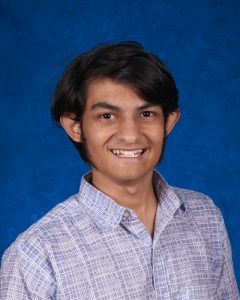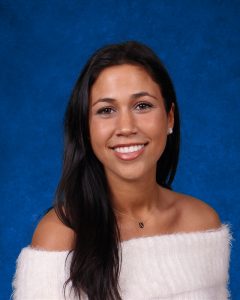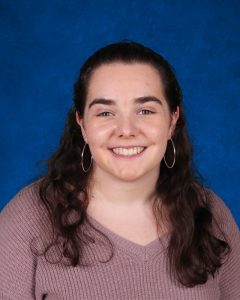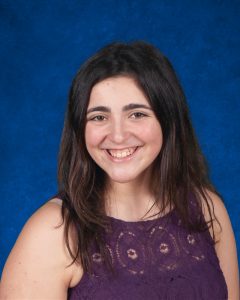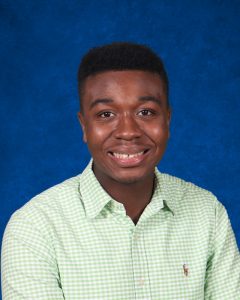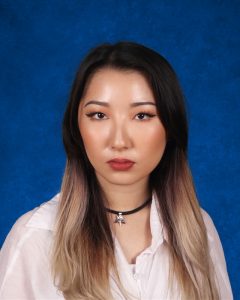Every Friday the Waldorf School of Garden City High School gathers in the student room for the weekly Student Assembly that consists of an extended speech by a senior on a topic of particular interest to them. The Senior Speeches as are a rite of passage for Waldorf students and are a required part of the high school curriculum. See below to read recaps of all the speeches given in the first Quarter of the High School Year!
John Jobin McAullife – 9/14
John Jobin opened his speech by remarking that anyone who knows him, knows that he likes to push his limits. He enjoys pushing himself and being challenged intellectually. To John, a problem is not something to be feared, but something to be solved. Throughout his life, he discovered a love fixing things, in his own words, “to bring order out of chaos.” Learning how things worked is an experience he is always seeking. John then explained how Waldorf has instilled in him an additional appreciation of aesthetics, where he could find his own order in a transcendent way. He learned this through stories like that of St. Michael, who forged order by defeating the dragon and dispelling the chaos of fear. These stories taught him that there are always new ways to look at problems and helped him face challenges head on. He closed his speech by telling the audience, “Youth is the time to make mistakes, and learn how to make order out of chaos in life!”
Kayla’s speech centered on her experience in the Global Leadership Adventures program. The program is designed to provide students with a global perspective by allowing them to complete service projects across the world in regions that need help. Kayla shared her experience in two such trips. First, she spent the summer of 2017 in the Dominican Republic. During that summer she helped build homes for those in need, however, rather than using traditional materials, the homes were build using plastic bottles filled with sand. During this time, she developed a deep connection to the local people and began to realize the impact of the work she was doing. This transformative experience inspired her to apply to the program again for the summer of 2018 when she was sent to Costa Rica to help paint a local school. Once again she felt herself connected to the children of the school where she was working and she left that summer feeling part of a larger whole. She implored the audience to, “step out of your comfort zones, and connect yourself to the world around you.” She says that these experiences gave her a better sense of her place in the world, and she was better for it.
Zoe opened by stressing that experience is what teaches life’s most important lessons and that our cumulative, unique experiences are what make us who we are. For her, the people in her life have provided her with the most valuable lessons. Zoe is the oldest of four, with her three siblings being triplets, two of which have been diagnosed with autism spectrum disorder. Zoe’s siblings taught her many things, however, the most important lesson she learned was to treat people with love and respect as everyone has challenges of their own. Throughout her life she tried to help students who are on the spectrum by being a friend when they need it and she also volunteered her time at programs like REACH at Hofstra University, where she is able to work with campers who are on the autism spectrum. She closed her speech by emphasizing that these experiences have taught her to be patient, accepting, compassionate, and have had an undeniable and indelible impact on the person she is today.
Mia titled her speech “My Journey with Judaism,” and discussed her personal experiences as she explored her faith. She is a member of the “Modern Orthodox” branch of Judaism which acknowledges the secular world while also observing the Sabbath and other traditions. Mia revealed how, at times growing up, she felt frustrated with the Sabbath restrictions (such as no driving) as well as the strict rules and requirements at the religion-based schools she attended. In the 9th grade she began to question her relationship to her faith, and this continued until 2017 when she visited Israel. There, she experienced the myriad ways that people connect to their culture and heritage and witnessed the spectrum of Jewish religious practice and ways of life. She grew to understand its intensely personal nature which strengthened her belief that the way one observes their religion is between the individual person and their god, and that no one else should determine what that should be. Mia now observes on her own terms, happily explaining that the “laws give me guidelines on how to live my life.”
Jovawn’s speech asked the question, “What is the best way to enact change?” For Jovawn, whose goal is to make a difference, the question proved challenging because he received many suggestions that moved him in different directions. Certain that he wants to help people, he was first inspired by Dr. Martin Luther King Jr. to become involved in politics. As he saw it, those who have power, are able to affect far-reaching change. Since he specifically wants to help people who are disenfranchised, making policy change seemed like the way to have the most impact. Subsequently, Jovawn participated in a number of organizations in pursuit of this goal. However, he found himself moving in this direction not out of love, but out of a sense of obligation. While he was happy to help people, it wasn’t working the way he imagined. Then, after participating in the Long Island Youth Court, where he helped defend a student in a real legal case, he realized what he was missing. He learned that change does not begin at the top, it starts with smaller actions that help individuals. This realization has changed the course of his life, as now Jovawn helps anyone he can in hopes of promoting positive change in the world. He concluded by saying that, “Change begins, not at the top, but with all of us.”
Jacey’s speech addressed the Korean Pop Music (K-Pop) industry, and how it negatively impacts performers as well as fans. She began by explaining the unrealistic beauty standards expected of K-Pop artists, especially women. In order to meet these standards, many performers take on unhealthy dieting habits which lead to depression and low self-esteem. In addition, the lack of body diversity within the industry and the depiction of exclusively skinny women as stars reinforces this standard, as does the warped advertising that perpetuates the negative ideals to the general population. Jacey contends that this culture has led to the obsession with plastic surgery in Korea including children as young as 12 years old! Jacey admitted that she has also struggled with these issues and she seeks to promote healthier habits for the next generation. She closed by saying, “Don’t be someone others want to be, just be who you are.”

